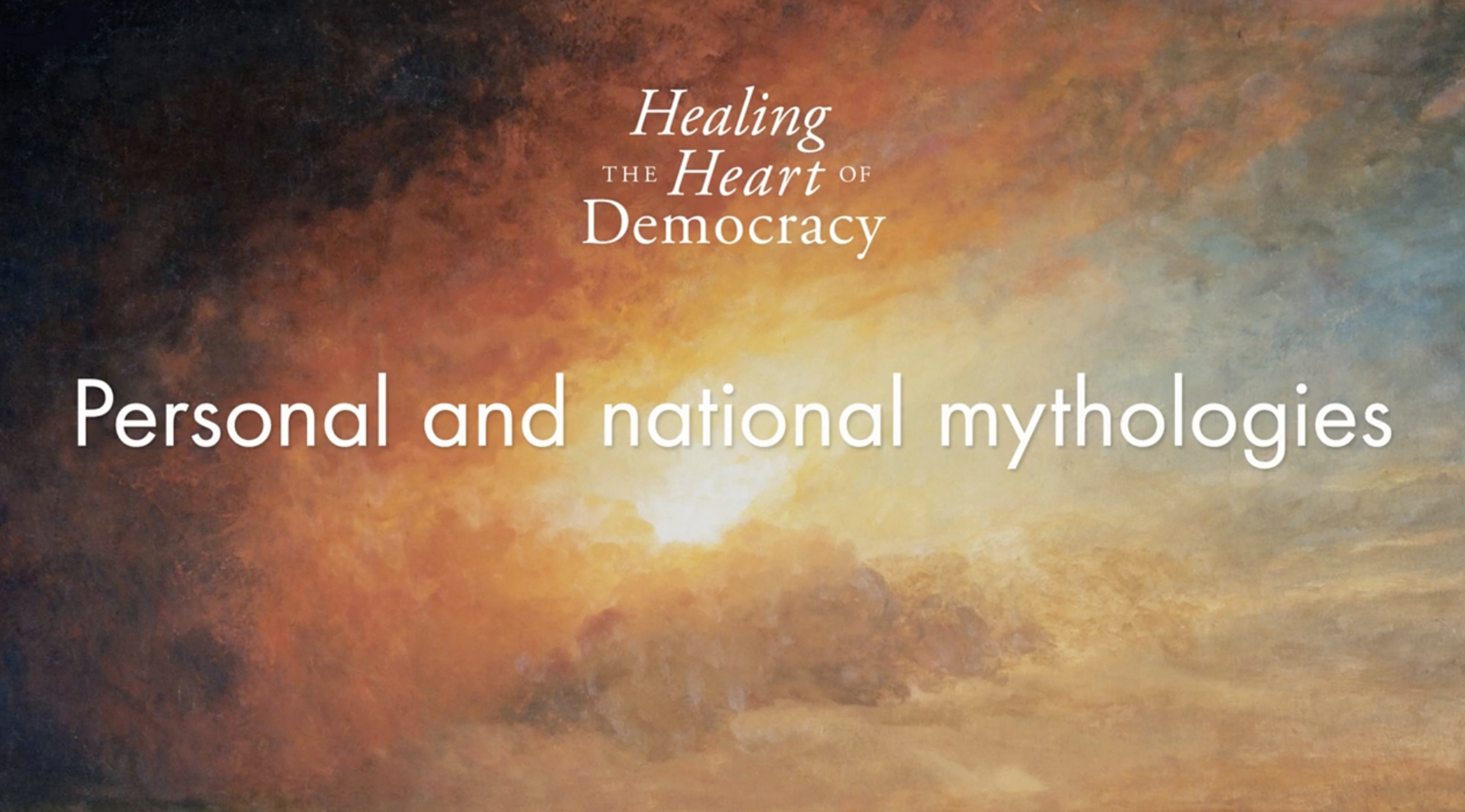From the Healing the Heart of Democracy Discussion Guide // What sort of distortions set in when some dimensions of history remain unconscious and unexamined, while others claim all of our attention? If we became more aware of the neglected histories of people we know—or of our own country—how might our own hearts be changed? Do you agree that we have national myths that are contradicted by the facts of American life? if so, what are some of those myths? If we acknowledged the gaps between them and the realities of our nation, what might change in us or in our political life? How might we retain certain elements of those same myths as aspirations that continue to call our nation to something better?

This video is a part of the Healing the Heart of Democracy Discussion Guide and can be found with more videos and resources in our “Healing the Heart of Democracy Hub.” You can explore the hub, download the guide, and find all of the videos along with additional resources here.
———
Even the longest, most detailed, and most expressive obituaries always omit the essence of a life: the history of a person’s heart. How many of us wish that we had asked more questions of someone we loved, not about what happened and when but about the inner experience of being that person? About hopes and fulfillments, failures and regrets? . . .
The heart of the world itself has an unwritten history. Historians write about visible movements: the movements of populations, cultural artifacts, and technologies; natural resources and money; armed forces and political power. But as the poet Rilke reminds us, “there is a boundary to looking.” The deeper movements that shape our world are impulses of the heart invisible to the eye: the hope and greed that move markets; the loves and hates that rouse armies; the desires to create or control that galvanize political power. (175-176)
Q. What do you think about Parker’s idea of “the unwritten history of the heart”? Whether it is an individual’s heart or “the heart of the world”? What sort of distortions set in when some dimensions of history remain unconscious and unexamined, while others claim all of our attention? If we became more aware of the neglected histories of people we know—or of our own country—how might our own hearts be changed?
Nations, like individuals, have myths rooted deep in their histories, myths that are always contradicted by their complex realities. . . . If we remain clear about the gap between America’s aspiration and its reality, our founding myth can continue to energize movement toward our goal. But when we imagine or pretend that it describes America’s reality, the myth becomes an enemy of its own aspiration. (178–180)
Q. Do you agree that we have national myths that are contradicted by the facts of American life? if so, what are some of those myths? If we acknowledged the gaps between them and the realities of our nation, what might change in us or in our political life? How might we retain certain elements of those same myths as aspirations that continue to call our nation to something better?
We offer an abundance of resources to help you learn more about our approach and explore the ways in which our work has meaningfully impacted people’s lives.
There was a problem reporting this post.
Please confirm you want to block this member.
You will no longer be able to:
Please note: This action will also remove this member from your connections and send a report to the site admin. Please allow a few minutes for this process to complete.
